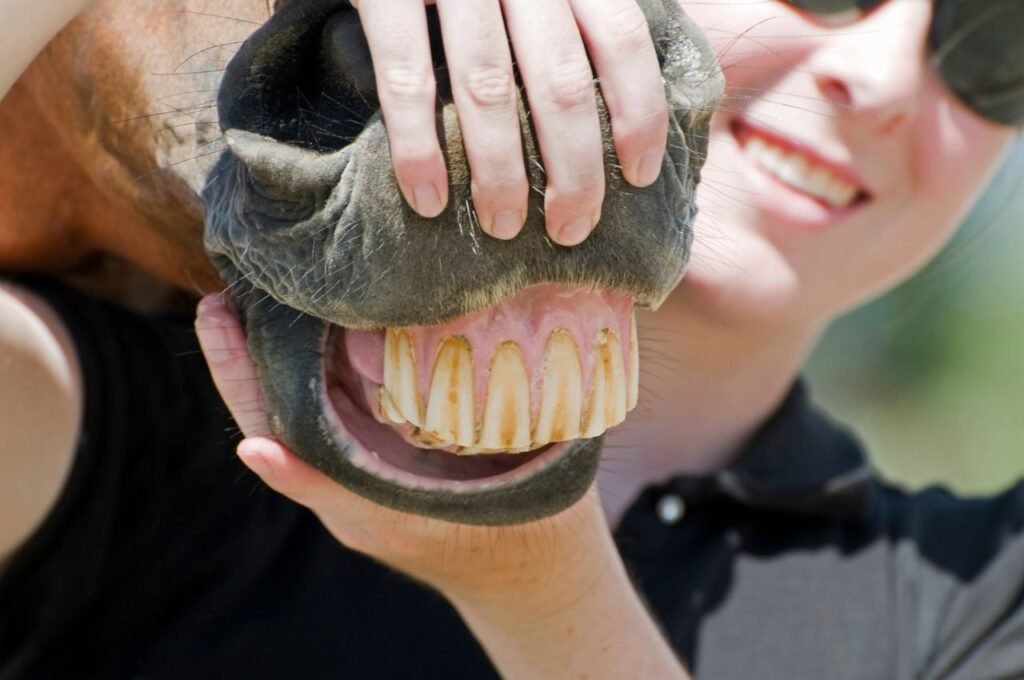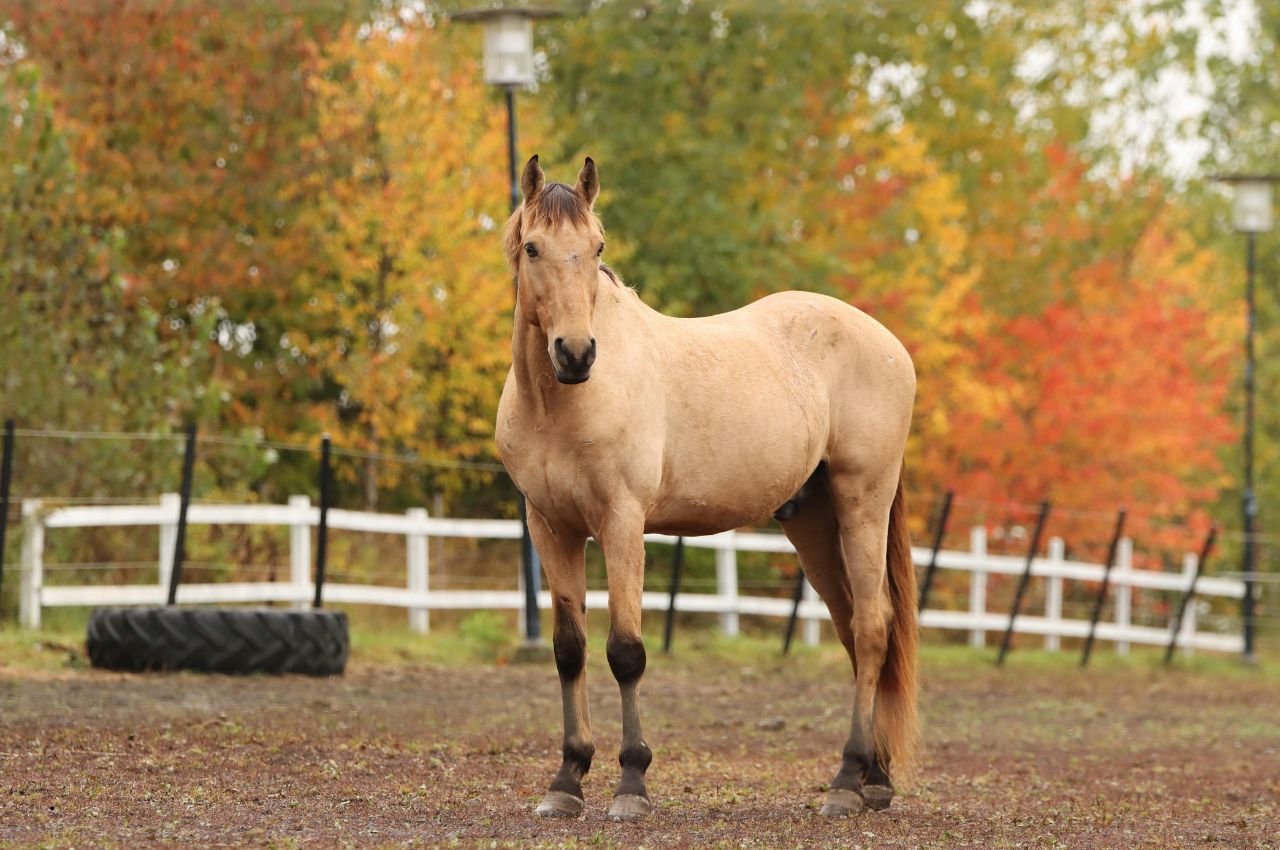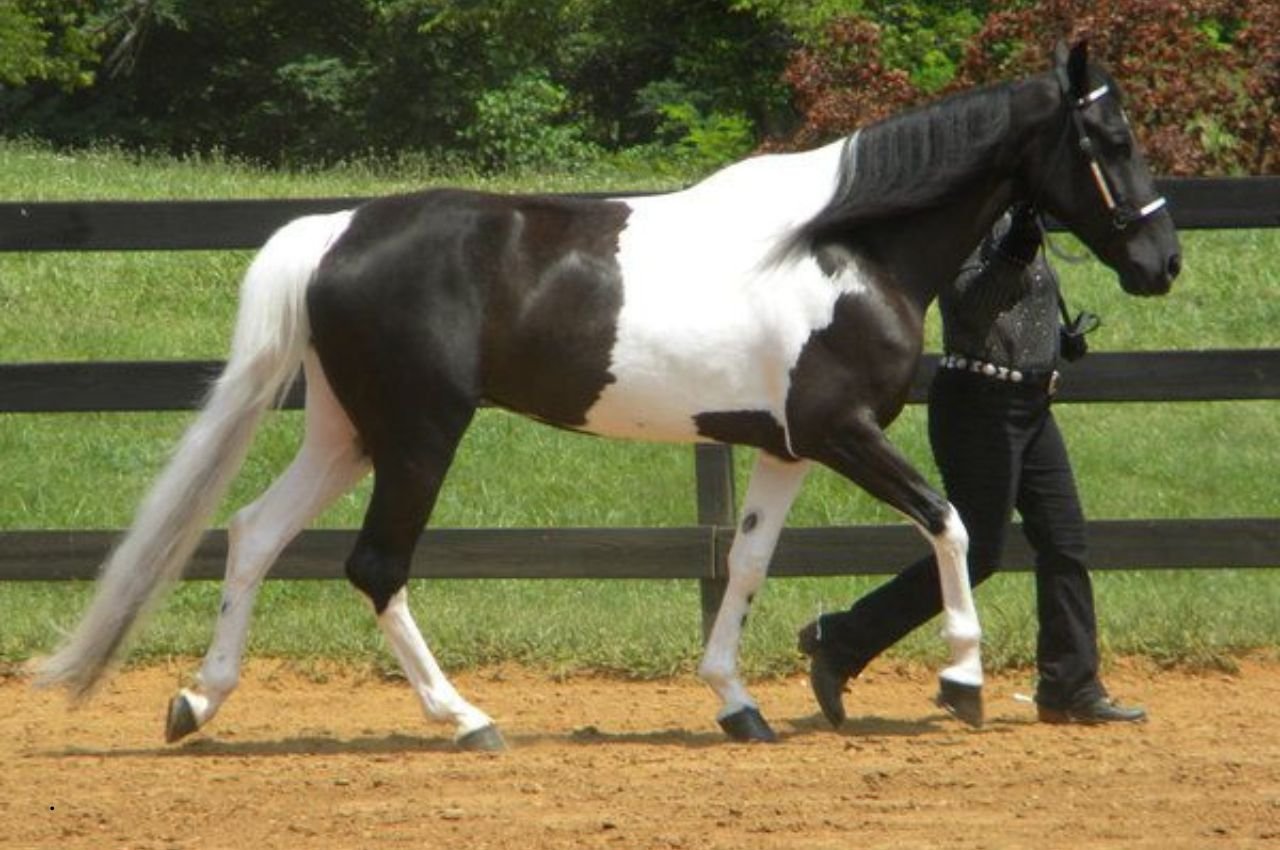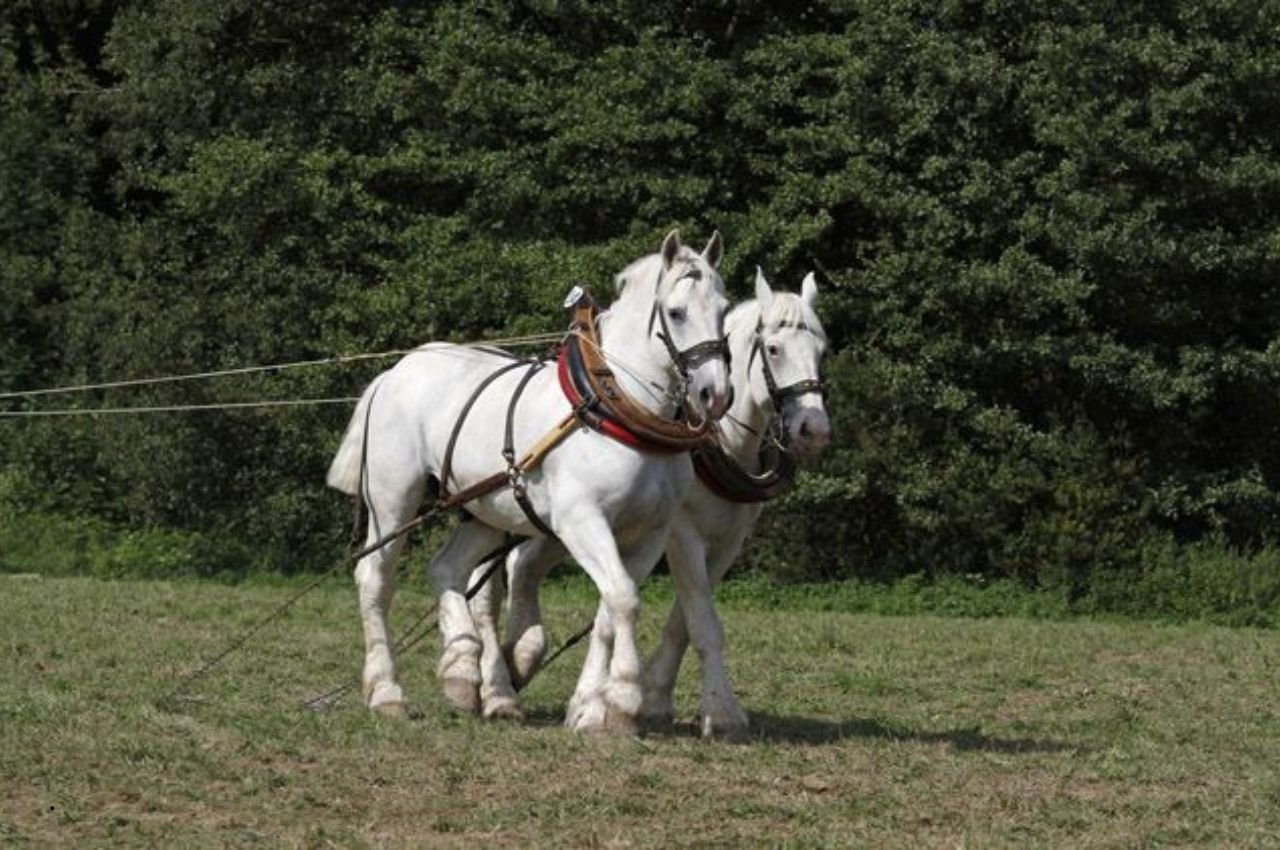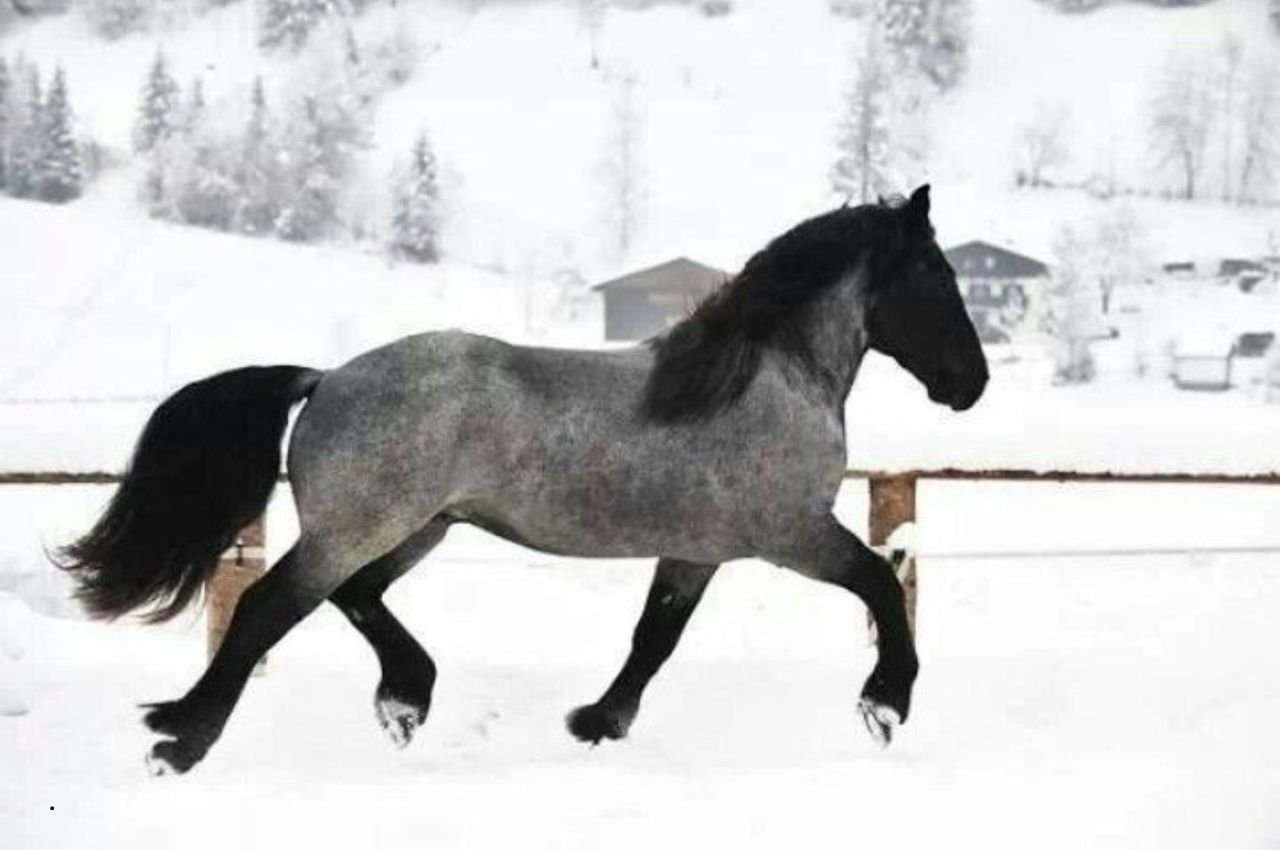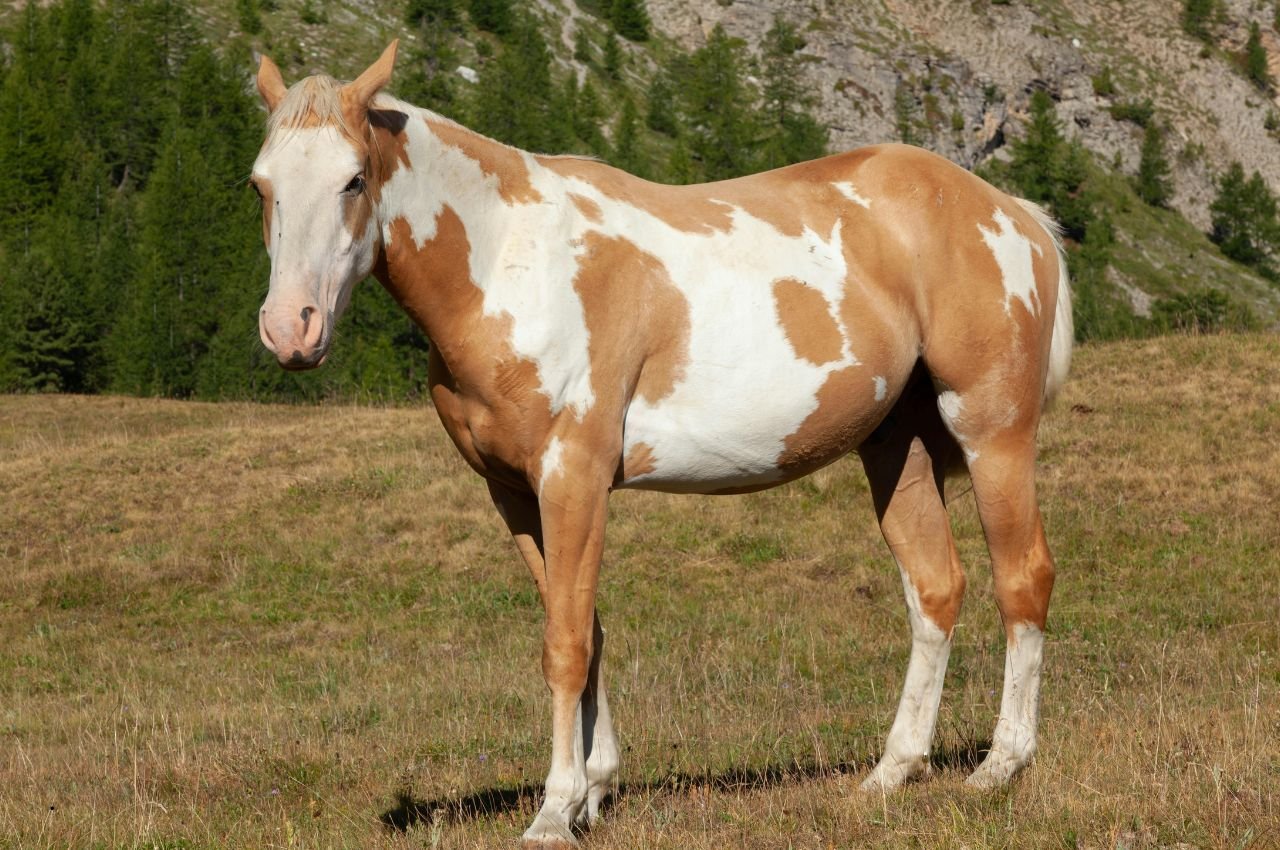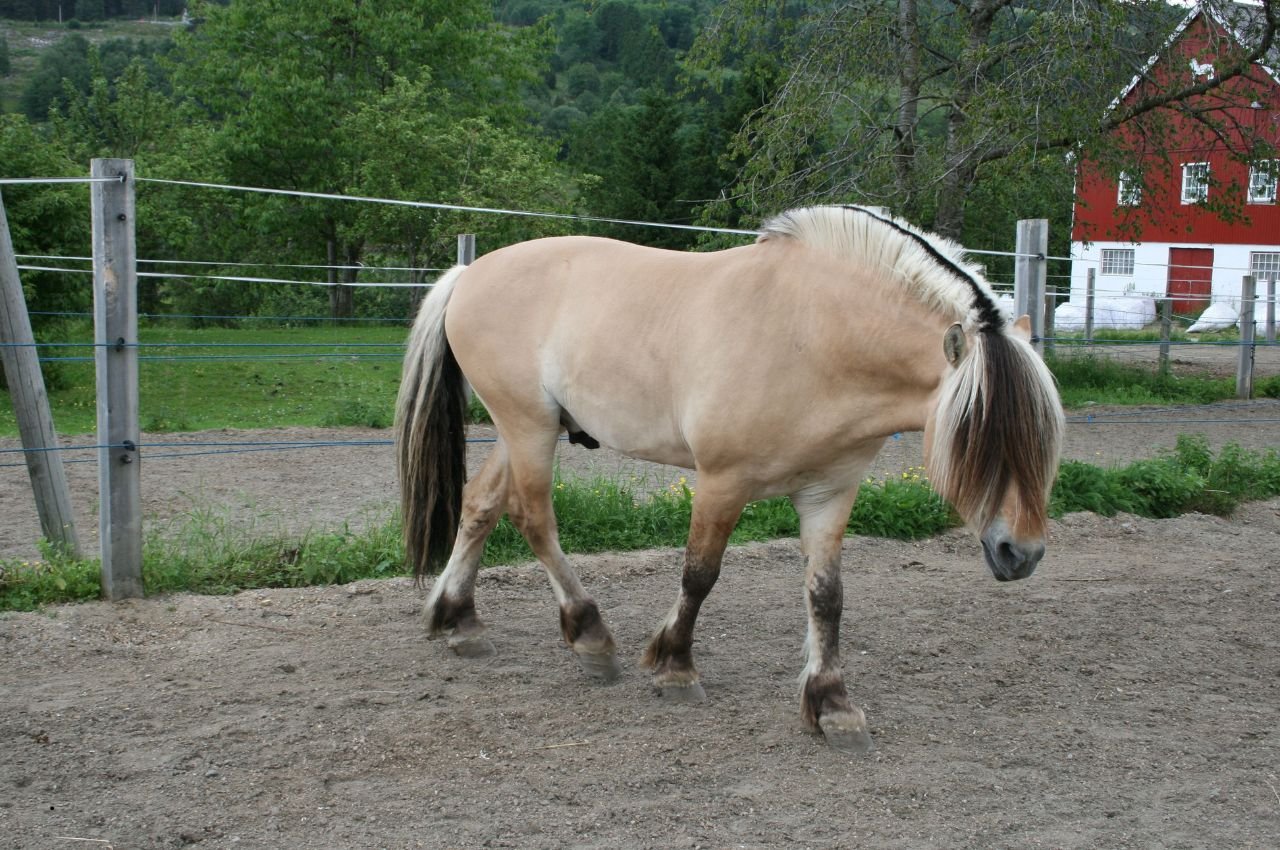When we think of dental issues, we often picture people and pets — but horses? Not so much. Yet equine dental health is a crucial aspect of their overall well-being. Horses use their teeth every single day — for grazing, chewing, and even communicating. So when they begin to lose teeth, it’s not only alarming but potentially dangerous.
In this post, we’ll explore 5 shocking reasons why horses lose teeth, the signs to watch for, and what you can do to protect your equine partner.
1. 🦷 Dental Disease and Decay
Just like humans, horses can suffer from periodontal disease, which is an infection of the gums and supporting structures of the teeth. It’s one of the leading causes of tooth loss in adult horses.
How It Happens:
- Plaque and food debris get trapped between teeth
- Inflammation of the gums (gingivitis) begins
- Over time, the disease erodes the bone and tissue holding the tooth in place
Warning Signs:
- Bad breath
- Difficulty chewing
- Dropping food (quidding)
- Swollen jaw or face
Once the supporting structures weaken, teeth can become loose and eventually fall out.
🛑 Shock Factor: Horses can develop severe dental disease without obvious signs — until it’s too late.
2. 🐴 Abnormal Tooth Wear (Malocclusion)
A horse’s teeth continuously grow (or erupt) throughout most of their life. If their teeth aren’t aligned properly (a condition known as malocclusion), it can cause uneven wear. Over time, this can lead to sharp points, wave mouth, hooks, and other dental problems that compromise the tooth’s integrity.
Consequences:
- Premature tooth wear
- Cracking or splitting of the teeth
- Tooth root infections
- Eventual tooth loss
Horses that don’t receive regular dental care are at higher risk.
🛑 Shock Factor: A simple misalignment left untreated can lead to complete tooth loss and chronic pain.
3. 💥 Trauma or Injury
Horses can sometimes be their own worst enemies — they chew on hard objects, kick each other, or get caught on fences and stall doors. Facial or jaw trauma is another major cause of broken or dislodged teeth.
Common Causes:
- Kicks from other horses
- Falls or collisions
- Biting hard or foreign objects
- Mishandling of bits and bridles
Even a minor fracture in the tooth or jaw can lead to infection or instability, which may cause the tooth to fall out.
🛑 Shock Factor: One poorly timed kick or bite on metal fencing can knock out multiple teeth at once.
4. 🧬 Genetic Conditions or Developmental Issues
Some horses are born with congenital dental problems that make them more susceptible to tooth loss. This includes:
- Overbite (parrot mouth)
- Underbite (sow mouth)
- Retained caps (baby teeth that don’t fall out)
- Missing or extra teeth
These conditions often lead to improper chewing and accelerated wear, especially in young horses.
🛑 Shock Factor: A young, otherwise healthy horse can start losing teeth early if their mouth isn’t developing properly.
5. 👵 Old Age and Natural Tooth Loss
As horses age, decades of grinding hay and grain take their toll. Older horses (20+ years) may naturally lose teeth due to:
- Tooth root resorption
- Weakened periodontal structures
- Worn-out enamel
Eventually, the teeth simply have nothing left to anchor them. While this is considered a natural process, it still impacts the horse’s ability to eat and maintain weight.
Signs in Senior Horses:
- Weight loss
- Dropping feed
- Bad breath
- Loose teeth felt during dental exams
🛑 Shock Factor: Some senior horses can lose multiple teeth in a single year — especially without proper diet adjustments and dental care.
✅ How to Prevent Tooth Loss in Horses
To protect your horse’s teeth and prevent unnecessary tooth loss:
1. Regular Dental Exams
- Schedule floating and checkups at least once a year
- Older horses or those with known issues may need bi-annual visits
2. Watch for Changes
- Monitor chewing behavior, appetite, and weight
- Look for food dropping, head tilting, or unusual behavior while eating
3. Feed Smart
- Use senior feeds or soaked pellets for older horses
- Avoid hard treats or objects they may try to chew
4. Protect from Trauma
- Avoid overcrowding in pastures
- Use safe fencing and remove chewable hazards
5. Start Early
- Begin dental checkups while your horse is young
- Address developmental issues promptly
FAQs:
Q1: Is it normal for horses to lose teeth as they age?
Yes, it can be normal for senior horses (usually over 20 years old) to lose teeth due to natural wear and weakening of the periodontal structures. However, tooth loss at any age should always be evaluated by a veterinarian.
Q2: How often should a horse get a dental checkup?
Most horses should receive a dental check-up at least once a year. Horses with known dental issues, senior horses, or those with abnormal wear patterns may need exams every 6 months.
Q3: What are the signs that a horse might be losing a tooth?
Common signs include:
- Dropping or spilling food (quidding)
- Difficulty chewing or weight loss
- Bad breath
- Head tossing or resisting the bit
- Visible swelling in the jaw or face
Q4: Can a horse still eat normally after losing a tooth?
It depends on which tooth is lost and the horse’s overall dental health. Some horses adapt well, while others may need dietary adjustments, such as soaked feeds or chopped hay, to maintain proper nutrition.
Q5: Do baby (deciduous) teeth fall out naturally in young horses?
Yes, young horses shed their baby teeth (called “caps”) as their permanent teeth come in. Problems occur when these caps are retained, which can cause pain and misalignment if not addressed.
Q6: Can poor diet cause a horse to lose teeth?
An improper diet can contribute to dental issues over time. Feeding very coarse or abrasive forage without proper dental care may lead to excessive wear, while nutrient deficiencies can weaken dental structures.
Q7: What is “floating,” and why is it important?
Floating is the process of filing down sharp points or uneven areas on a horse’s teeth. It helps maintain proper alignment and prevents painful conditions that can lead to tooth damage or loss.
Q8: My horse lost a tooth — should I call a vet immediately?
Yes. Any lost tooth should be evaluated by a veterinarian to rule out infection, trauma, or underlying dental disease. Delaying treatment can lead to complications like abscesses or further tooth loss.
Q9: Can horses get cavities like humans?
Yes, though rare, horses can develop equine dental caries (cavities), especially in their cheek teeth. This is often caused by high-sugar diets and improper dental hygiene.
Q10: Are there breeds more prone to dental problems?
While all horses can develop dental issues, some breeds with shorter heads (brachycephalic types) or inherited jaw misalignments may be more prone to abnormal wear or crowding.
🧠 Final Thoughts
Tooth loss in horses isn’t just about aesthetics — it directly affects their nutrition, comfort, and quality of life. While some causes, like old age, are unavoidable, many cases are preventable with the right care and attention.
Whether you’re caring for a spirited young gelding or a wise old mare, paying close attention to their dental health is one of the best gifts you can give.

